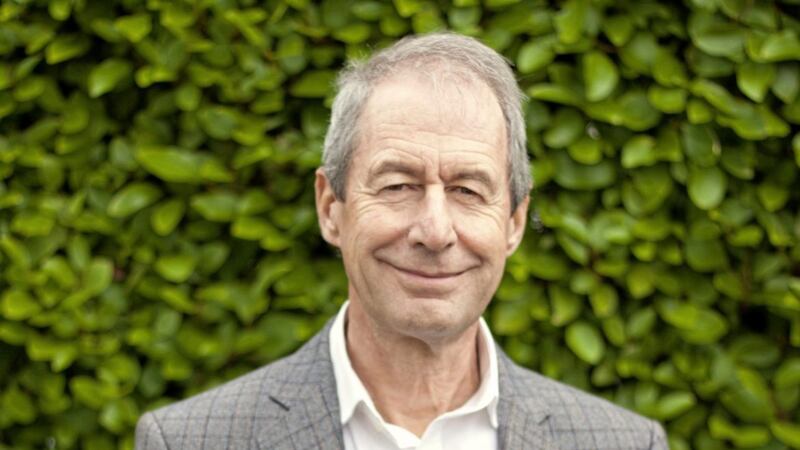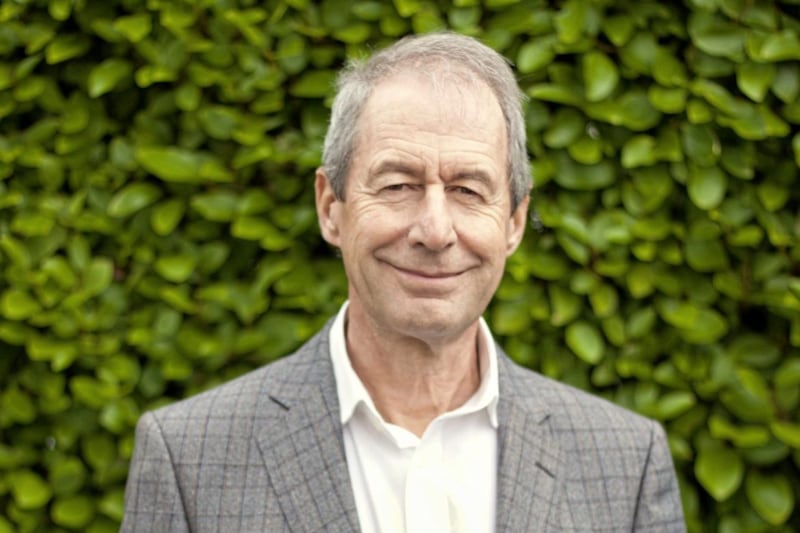WE NEED to teach our children to prepare for failure and to take full responsibility for their behaviour. This is the message from Co Louth medic and author Dr Harry Barry, who says that endless praise and rewarding success can be harmful to their future wellbeing.
The NHS defines self-esteem as the opinion we have of ourselves. And despite unprecedented levels of mental health problems among our young people, medical and educational institutions continue to use the model that raising our self-esteem and feeling positive about ourselves can make us deal better with life's ups and downs and reduce levels of depression.
However, Dr Barry challenges this belief, saying "self-esteem is subjective and cannot be measured and if it can't be measured how on Earth can you increase it?"
He goes as far as to say that attempts to improve self-esteem may have the opposite effect, damaging our mental health and increasing our risks of anxiety, depression, eating disorders and self-harm.
Father-of-three Dr Barry takes up from where American psychologist Albert Ellis left off 30 years ago, in believing it is far more important to focus on unconditional self-acceptance, while taking full responsibility for our behaviour.
In his latest book, Self Acceptance, he uses decades-long research to show how self-esteem is a "myth" which has become increasingly embedded in our 21st century culture and instead provides practical ways in which we can nurture our sense of worth and emotional resilience.
"Self-esteem is damaging us individually and as a society. It is preventing us from becoming the wonderful, unique individuals that each one of us is," Dr Barry says.
"Life's not easy, life's not fair – that's realism. We have to stop giving children unrealistic expectations of what life holds. It encourages them to rate themselves as successes or failures and that's not healthy.
"Our children are growing up in a world of social media where their image and actions are constantly rated. Self-rating can lead us to very dark places, but if we can learn unconditional self-acceptance at the same time as rating our behaviour, we will put ourselves on the path to mental wellbeing."
Dr Barry is not alone in questioning the validity of self-esteem. In a major review in 2001 Nicholas Emler of the London School of Economics questioned many aspects of the concept, as did American Psychologist Professor Roy Baumeister, who published their findings in Scientific America.
So why the lack of change? "The self-esteem industry is huge. In the USA alone is thought to be worth billions of dollars," Dr Barry says.
He was delighted to receive a number of positive reviews of his book from medical professionals and academics, as well as from Bruce Daisley, European Vice-President of Twitter, who said he found himself "riveted by its compelling evidence" and how it was "guaranteed to change your behaviour".
"I was delighted by his response," Dr Barry says. "Even though he is at the heart of social media he was honest enough to say it forced him to have a rethink. There has been a parallel rise in mental health difficulties with the rise in the use of social media, so hopefully if we can reach people like that in positions of influence, then that can trickle down to it's users."
In an ideal world Dr Barry would like to see the likes and dislikes buttons removed on social media, as well as the ability to tweak photographs.
"I also feel that no child under the age of 14 should have a smartphone, but more than anything we need to talk to young people about this world of rating and teach them that their value as human beings is unique and special and can't be compared," he says.
"Whatever you do in life – your trade, job or your skills – none of these define who you are. We need to learn that if we fail in a test or on the sports field, we are not failures – rather we simply failed at a task. The only failure in life is not getting back up again."
And his message for everyone, but especially parents, teachers and employers is to "never praise the result, only praise the effort".
"The minute you praise the results the danger is the person begins to associate the rating of themselves as a person with the result and if they don't go well the next time their rating goes down and this can spiral downwards and lead to devastating consequences."
The workplace is another breeding ground for the equally destuctive world of self-and-other rating. Some jobs require you to meet sales targets or go head to head with your colleagues to secure a business deal. Some professions, like teaching, are immersed in an atmosphere of ratings with the publication of school league tables. Dr Barry states in his book that in Ireland 18 per cent of absenteeism from the workplace is due to stress.
"If unconditional self-acceptance was universally applied in the workplace, it could have a positive transformational and nurturing effect on the mental health of those involved. I believe that large companies who choose to highlight and promote its importance will retain key personnel, create a better working atmosphere, improve team performance and save costs in terms of absenteeism and presenteeism from the consequences of mental-health difficulties."
A GP and cognitive behavioural therapist, Dr Barry has written eight books on the subject of mental health. He is passionate about steering patients away from "this endless circle of going from psychiatrist to psychiatrist and from therapist to therapist and medication to medication".
So how can we on a practical level become comfortable in our own skins?
"To develop unconditional self-acceptance, we must challenge on paper over a period of months any occasion where we rate ourselves as failures, or weak or worthless. This allows the rational mind to increasingly overrule the emotional mind which is trying to convince you that you are a failure," he concludes.
:: Self-Acceptance: How to banish the self-esteem myth, accept yourself unconditionally and revolutionise your mental health by Dr Harry Barry is published by Orion Books and is out now.





